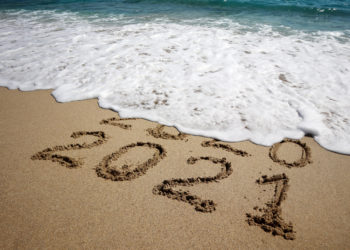Editor’s Note: Back in early 2020, we didn’t have a clear picture of how long the COVID pandemic would extend, disrupting our personal, business, and academic lives. As we head into the midst of what are likely to be some of the toughest few months yet as the virus spreads more rapidly and vaccine access remains limited at best, I’ve invited the Chefs to revisit some of their posts from earlier in the pandemic, now that we have a longer view of how things have gone and where they’re going. First, Karin Wulf offers some new thoughts on her May, 2020 post “Talking About — and Maybe Even Selling — Books in a Pandemic“. Please do let us know what has worked for you and what hasn’t in the comments section.

In the late spring I wrote with fellow historian Lindsay Chervinsky about new ways historians and their publishers were marketing their books during the pandemic. Much of what we discussed — especially the increased burden on authors with the disappearance of in-person conferences and other events and the potential for online engagement – only intensified over the course of 2020. In particular, online “book clubs” or other salon-style events featuring authors of new books have taken off; a terrific example is the Slavery Archive Book Club which meets for about 90 minutes, allowing a set number of zoom participants to interact with authors while anyone on their YouTube channel can watch and chat via a moderator. Book Club founder Ana Lucia Araujo of Howard University noted that,
I realized that we would be confined for many months without face-to-face events. I invited historian Jessica Johnson of Johns Hopkins with whom I have collaborated for years to join me in this online initiative. The book club expanded fast and we are now four co-hosts (including Alex Gil and Vanessa Holden). What we thought would be one semester will last at least until end of 2021.
Both Araujo and Johnson have new books out this year; Johnson confirmed that like other new book authors, she has participated in plenty of online events, both public and for individual classes as her book was launched. Major conferences have moved to online exhibit halls; the American Historical Association which should be meeting this weekend in Seattle described how they are trying to virtually recreate the community aspect of “the hustle and bustle of the Exhibit Hall.” Even while it was a mostly good year for some kinds of book sales, it’s hard to know what the full impact of the pandemic will be for scholarly books and the way they interact with and create intellectual community. I have loved being able to attend events that I wouldn’t otherwise have been able to travel to and I have heard more than one colleague confess that, like me, they are often attending an event while eating lunch or making dinner. The integration with our home lives is both blessing and burden and, as with so much else, we will see what innovations prove to be our new necessaries. Also, Lindsay’s History Summit will be back for 2021 — stay tuned!



